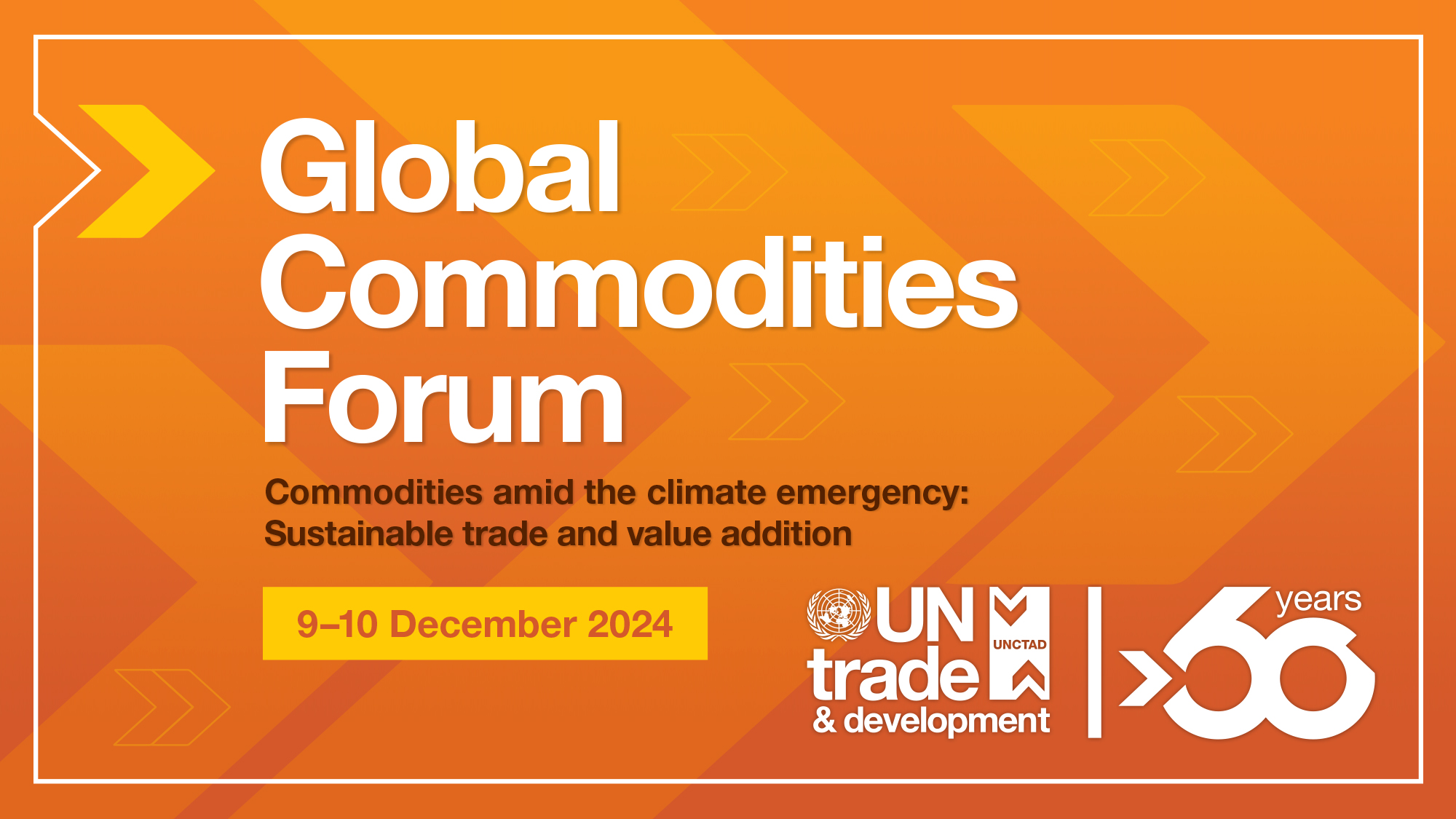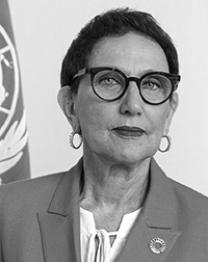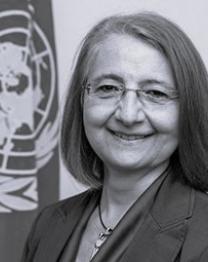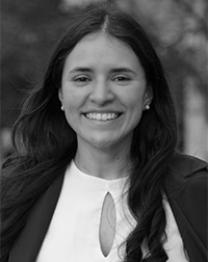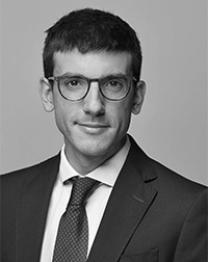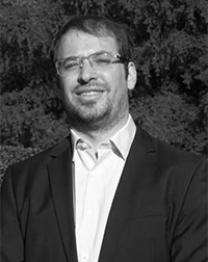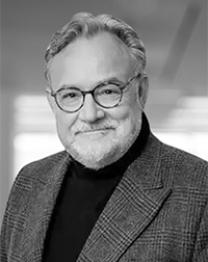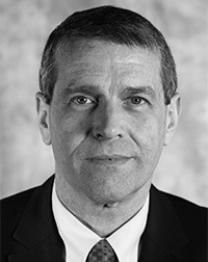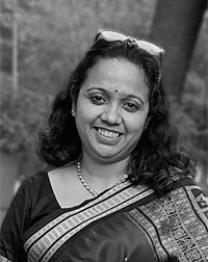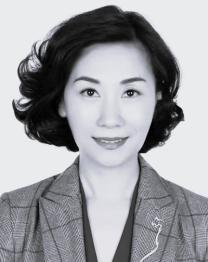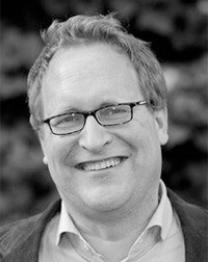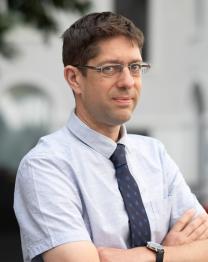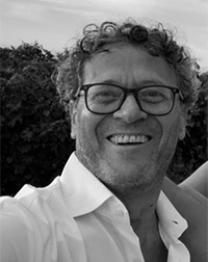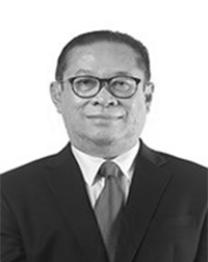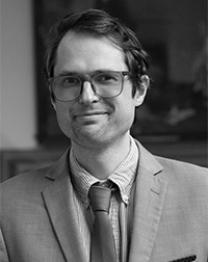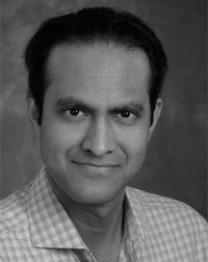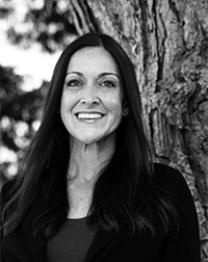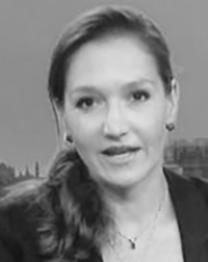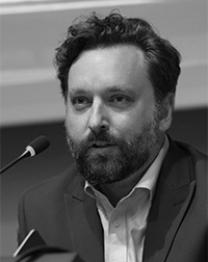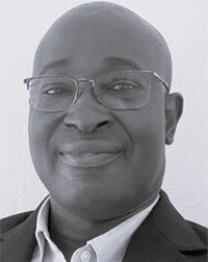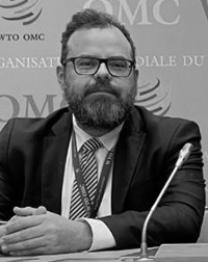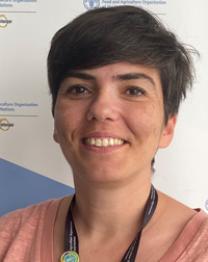Commodities amid the climate emergency: Sustainable trade and value addition
The intensifying climate crisis is upending global commodity value chains, disrupting production, destabilizing supplies and driving price volatility, with developing nations bearing the brunt.
- Cocoa prices surged 148% from $2.24 to $5.56 per kilogram between July 2022 and February 2024, driven by climate-induced crop diseases in West Africa.
- Water scarcity, worsened by climate change, threatens mineral production, driving up costs and intensifying competition for limited resources, with severe impacts on communities and ecosystems in mineral-rich countries.
- The global shift to renewables poses challenges for fossil-fuel-dependent countries. To limit global heating to 2°C, up to a third of oil, half of natural gas and 80% of coal reserves may become stranded assets, shrinking revenues.
- About 95% of the 20 most climate-vulnerable countries are commodity-dependent developing nations.
Opportunities for transformation
The Global Commodities Forum 2024, organized by UN Trade and Development (UNCTAD) with its partners, explored solutions to reshape commodity trade and value addition, with a focus on developing countries.
- Critical minerals demand: The need for energy transition minerals like lithium is expected to triple by 2030 and quadruple by 2040, providing resource-rich nations with pathways to prosperity and sustainable development.
- Sustainable agriculture: Practices aligning economic growth with environmental goals are gaining momentum. This shift is vital, as small-scale farming caused 68% of global deforestation between 2000 and 2018.
- Natural fiber innovation: Abundant resources like cotton, bamboo and hemp in developing countries offer sustainable alternatives to synthetic plastics. Exports of non-plastic substitutes, valued at $831 billion in 2022, are growing 30% faster than plastics as markets prioritize sustainability.
Session topics
The forum’s four sessions focused on:
- Adapting to the energy transition in fossil fuel-dependent developing countries
- Promoting natural fibers in the climate action agenda
- Fostering sustainable trade in agricultural commodities: The role of standards and traceability
- Harnessing benefits from critical energy transition minerals
Participation
The Global Commodities Forum is an annual multi-stakeholder conference, open to all UN Trade and Development member States. Participants included representatives from national governments, international commodity bodies and the private sector, as well as policymakers and experts, from all regions of the world.
Rebeca Grynspan, of Costa Rica, became UNCTAD's eighth Secretary-General on 13 September 2021 and is the first woman to lead the organization.
Prior to her UNCTAD appointment, she was the Ibero-American secretary-general from 2014 to 2021, also the first woman to head the organization. During her mandate, she has coordinated the 22-member Iberoamerican Conference and led four key summits of Heads of State and Government.
In 2010 she was appointed Under-Secretary-General of the United Nations and Associate Administrator of the United Nations Development Program (UNDP) and prior to that was UNDP Regional Director for Latin America and the Caribbean.
Prior to joining the United Nations, Ms. Grynspan served as Vice-President of Costa Rica from 1994 to 1998. She was also Minister of Housing, Minister Coordinator of Economic and Social Affairs, and Deputy Minister of Finance. In 2021 she was named Special International Advisor to the newly created Economic and Social Council of Argentina and invited to join as member of the G20 High-Level Independent Panel on Financing the Global Commons for Pandemic Preparedness and Response.
In addition to her experience as a lecturer and advisor to several international organizations, she has been actively involved in key United Nations initiatives, such as the Millennium Project's Task Force on Poverty and Economic Development and the High-level Panel on Financing for Development.
In 2014 and 2015, she was recognized as one of the 50 leading intellectuals of Latin America. And she was recognized as one of the 100 most powerful women in Central America by Forbes magazine.
Ms Grynspan holds a degree in Economics by the University of Costa Rica and a MSc in Economics by the University of Sussex. She has been awarded a Doctorate Honoris Causa by the University of Salamanca, the University of Extremadura and the European University of Madrid in recognition of her outstanding professional achievements.
Luz Maria de la Mora is the Director of UNCTAD's Division on International Trade and Commodities. As a former Vice-Minister for International Trade and decades of government and private sector positions, Ms. de la Mora developed a career in international trade policy, negotiation, operations, and trade promotion.
During her tenure as Vice-Minister for International Trade of Mexico from 2018 to 2022, Ms. de la Mora led Mexico's trade and investment policy, overseeing fourteen free trade agreements with 51 countries. To bolster Mexico's development, she steered discussions in the World Trade Organization, the United States-Mexico-Canada Trade Agreement, Comprehensive and Progressive Agreement for Trans-Pacific Partnership, and Pacific Alliance, among others. She also coordinated policy dialogues and handled private sector consultations.
Ms. de la Mora holds a PhD in Political Science from Yale University, USA, a Master's degree in International Affairs from Carleton University, Canada, and a Bachelor's degree in International Relations from El Colegio de México, Mexico.
She is fluent in English and Spanish, and proficient in French.
Rodrigo Cárcamo Díaz is Chief (a.i.) at the Commodities Policy Implementation Section of United Nations Trade and Development (UNCTAD) in Geneva, Switzerland.
During his more than two decades of experience working on different development issues, he has authored different publications on development issues, including journal articles, a book, book chapters and research papers. His current research interests are focused on sustainable agricultural value chains for export in developing countries.
He also leads capacity-building projects on this topic in different developing countries, organizes international policy dialogue events, and represents UNCTAD in different international fora linked to agricultural commodities, trade and development issues.
He holds an MPhil in Economics from the University of Oxford, and a Diploma in Statistics from the Universidad Católica de Chile.
Diana Rivera is an experienced economist with a Master's degree in Economics and a specialization in Statistics from Universidad Nacional de Colombia. With over 10 years of expertise in macroeconomic analysis, economic forecasting, and public policy, she has developed a strong track record of driving impactful initiatives. Currently, she holds the position of Deputy Director of Macroeconomic Programming at the Ministry of Finance, where she leads strategic efforts focused on achieving medium- and long-term economic goals. Her work includes overseeing key policy areas such as reindustrialization, energy transition, and credit agreements, all of which play a crucial role in fostering sustainable economic growth.
Alberto Americo is a Senior Macroeconomic Analyst at the Bank for International Settlements (BIS). Alberto has held various roles within the Monetary and Economics Department and the Banking Department at BIS. He has contributed to quarterly reviews, annual reports, and economic outlooks, and has led and supported various research projects in forecasting, financial markets, and macroeconomics. His international experience includes an assignment in Hong Kong at the BIS representative office for Asia and the Pacific. He began his career at the European Central Bank (ECB) as a trainee in the Directorate General Statistics. He holds a Master of Science in Economics from Università degli Studi di Torino. With a strong background in macroeconomics and a keen interest in commodity markets, Alberto has co-authored research on the energy transition's impact on markets.
Noel Perez-Benitez is the Coordinator of the Fiscal Affairs Unit in the Economic Development Division at the United Nations Economic Commission for Latin America and the Caribbean (UN-ECLAC).
Noel has held key technical roles across the Mexican public sector, including leadership positions at the Belisario Dominguez Institute of the Mexican Senate, the Mexican Institute of Social Security, the Ministry of Finance, and the Ministry of Social Development. Previously, he served as a Research Assistant in the Fiscal Affairs Department of the International Monetary Fund.
Noel holds a Master of Public Policy from the University of Chicago and a Bachelor of Arts in Economics from the University of Pennsylvania.
Lian Allub is a principal economist at the Socioeconomic división at CAF. He holds a Ph.D. in Economics from Universidad Carlos III de Madrid. His research interests focus on the macroeconomic aspects of economic development and international trade in developing economies. At CAF he has been the editor of the 2021 Report on Economic Development, “Pathways to Integration: Trade facilitation, infrastructure and global value chains” and the 2024 Report on Economic Development “Renewed Energies: a just energy transition for sustainable development”. He has also published at the Journal of Monetary Economics, European Economic Review and The Economic Journal.
Valérie Ducrot is the Executive Director of the Global Gas Centre (GGC) in Geneva, Switzerland, an association established in December 2014 to address energy challenges and promote gas as a sustainable commodity in the low-carbon energy transition. Valérie's professional focus includes the geopolitics of natural resources, climate action, security of supply, and international relations, emphasizing the importance of strategic partnerships for energy security and investment in cleaner technologies. Previously, she served as the Manager of the UNECE Gas Centre from 2009 to 2014 and held various roles at ENGIE. With 27 years of experience in the global energy sector, particularly in gas, she is also an Ambassador of the Commodities Trading Club and an Advisor to a Swiss company, SoHHytec. Valérie holds an MBA from EMLYON and a Master's in Political Sciences from the University of Lyon, France. Additionally, she completed the Executive Diploma Program in International Relations and Business through the Ambassador Partnership, a consultancy comprised of former Ambassadors from 15 countries.
M. Mohamed Réda Ouguenoune cumule plus de 25 années d’expérience dans le secteur des hydrocarbures. Il est en charge de la protection de l’environnement et de la préservation du milieu naturel au niveau corporate de son entreprise. Il milite au sein de l'entreprise pour la rupture avec le modèle de production traditionnel, pour un modèle durable et respectueux de l’environnement. La démarche s’appuie sur le respect des engagements internationaux de l’Algérie, notamment en matière de réduction des gaz à effet de serre et de lutte contre les changements climatiques.
M. Ouguenoune a contribué dans plusieurs projets en interne, ainsi qu’à l’échelle de la région méditerranéenne, tels que: (1) la Coordination intersectorielle en faveur du développement durable de l’initiative sur l’économie bleue en méditerranée occidentale, et (2) le Programme pour la mer Méditerranée - Med Programme- Réduction de la pollution d’origine terrestre dans les zones côtières prioritaires gravement polluées et mesure des progrès réalisés / amélioration de la durabilité et de la résilience climatique dans la zone côtière. Mr Ouguenoune est diplômé en Droit International de l’Environnement, de l'Institut des Nations Unies pour la Formation et la Recherche (UNITAR).
Elke Hortmeyer is Director of Communications and International Relations at the Bremen Cotton Exchange. Elke completed an apprenticeship in wholesale and foreign trade, specializing in the tea trade. She then went on to study philosophy and German language and literature at the University of Cologne, graduating with a Magistra Artium degree. She has served for the cotton industry for almost 20 years.
Elke is member of the Panel on Social, Economic and Environmental Performance of Cotton Production (SEEP) of the International Cotton Advisory Committee (ICAC) and representative of the Bremen Cotton Exchange in the Partnership for Sustainable Textiles.
Currently she serves as Chair of the Discover Natural Fibers Initiative (DNFI) and Vice Spokesperson of the Make the Label Count Initiative.
Marco Fugazza serves as an Economist at United Nations Trade and Development (UNCTAD) with expertise in international trade and development economics. Before joining the UN, he taught at Galatasaray University in Istanbul and worked as an Economist at the French Ministry of Labour. Additionally, he has provided consulting services to both the World Bank and the International Labour Organization. His research covers a wide range of topics in international trade and development, including trade policy, agricultural commodities, maritime connectivity, and the political economy of trade agreements. Over the course of his career, he has published numerous research papers and co-authored practical guides on trade analysis and Non-Tariff Measures. Recently, he authored a UN report on hemp and its applications, as well as an analysis on the missing trade in hemp products. He holds a PhD in Economics from the European University Institute and a master’s degree in international economics from the Graduate Institute of International and Development Studies.
Robert Antoshak has over 30 years of experience in the fiber and textile industries. As a partner with the Gherzi Textil Organisation, he manages the Gherzi USA office and consults with various companies throughout the textile supply chain.
He has held executive positions with the Fiber Economics Bureau as editor of the Fiber Organon, the American Fiber Manufacturers Association as Director of International Trade, the American Textile Manufacturers as Associate Director of International Trade, Trade Resources, Inc. as President, Werner International as Vice President, INTL-FCStone, LLC as Managing Director of the Fibers & Textiles Division, and Olah Inc. as Managing Director.
In addition to an extensive background in marketing, mergers & acquisitions, sourcing, information services, and strategic planning, Mr. Antoshak has strong experience in trade negotiations and worked as an FBI-cleared industry advisor to the U.S. government on numerous bilateral quota trade agreements, NAFTA, the MFA, and the WTO.
Widely published, Mr. Antoshak is a regular contributor to just-style.com and sourcingjournal.com.
Eric Trachtenberg is the Executive Director of the International Cotton Advisory Committee (ICAC). Before coming to ICAC, he oversaw programs to improve food security, support agricultural transformation, and strengthen land productivity at the U.S. Millennium Challenge Corporation (MCC). His earlier background includes 15 years’ service with USDA’s Foreign Agricultural Service (FAS) including diplomatic assignments in different destinations, as well as founding the agricultural practice at McLarty Associates, a global strategic advisory firm.
He has a Masters’ Degrees in Agricultural Economics from Michigan State University, a Masters’ in Public Administration from the University of Southern California, and Bachelors’ degrees in Government and Economics from Cornell University.
Damien Durand is Economics Director of Alliance for European Flax-Linen & Hemp. The France-based organization represents companies across the entire flax value chain, from field to fabric, in 16 European countries. He is in charge of economic monitoring and operational support for international issues involving the flax-linen sector.
Elisabeth van Delden is the Sustainability Manager Europe at Woolmark and Campaign Manager for Make the Label Count
Elisabeth started working in the natural fibre industry in 2011 when she joined the International Wool Textile Organisation (IWTO) as Secretary General in Brussels. This was the time and place where she developed her passion for natural fibres and gained expertise in navigating the EU's legislative processes. Before joining Woolmark, she consulted with natural fibre companies along the entire supply chain, from farm to fashion. In her role as Campaign Manager for Make the Label Count, Elisabeth advocates for a level playing field for natural fibres within EU textile legislation. Make the Label Count is building an international coalition of organisations representing a wide range of natural fibre producers and environmental groups, who are all working together to ensure that sustainability claims for textiles in the EU are fair and credible.
Ms Chandrima Chatterjee is the Secretary General of the Confederation of Indian Textile Industry (CITI), New Delhi.
Ms. Chandrima Chatterjee with her 25 years of experience of research, policy, advocacy and trade facilitation.
Besides working on trade facilitation and competitiveness issues for the textile value chain, she has been associated with skilling, sustainability and responsible business initiatives, recognizing the growing role of these as competitiveness tools.
Having worked on domestic and export sector and dealt with issues of the entire textile value chain through her earlier stints at AEPC, CITI and national bodies like ASSOCHAM, she has been lending her expertise for an overall growth of the textile value chain, in line with CITIs vision of a strong textile industry in India.
Li Lan, Director of External Relations and Partnerships of the International Bamboo and Rattan Organization (INBAR); Secretary General of China National Innovation Alliance of Bamboo and Rattan Sectors; Initiator, Founder and Secretary General of China Bamboo and Rattan Brand Cluster. She used to serve as Director of Industrial Development Department, Deputy Director of National Research Center of Bamboo and Rattan Engineering Technology, Deputy Director of Research and Education Division and Director of Training Division of the International Center for Bamboo and Rattan (ICBR) of the China National Forestry and Grassland Administration (NFGA). Graduated from the School of Economics & Management of Beijing Forestry University with a master’s degree, Li Lan is titled Senior Engineer. In her career, Li Lan has accumulated rich experiences in the development of bamboo and rattan industries, science and technology promotion and training, targeted poverty alleviation, research management and key laboratory construction. With the sponsorship of the Chinese Government, she had led more than 10 national foreign aid projects and over 80 domestic technical training covering 30 countries and 12 provinces in China, and set up a number of pilot sites in Southwest China. She is a winner of of “Liang Xi Forestry Science and Technology Award”, “National Outstanding Worker in Forestry Science and Technology”, “Outstanding Individual in Forestry Reform” and “National Award for Outstanding Contributions to Ecological Conservation”.
Lars Kahnert is an advisor on digitalization within the GIZ Sustainable Agricultural Supply Chains Initiative (SASI). In this role, he is steering the multi-stakeholder ‘Digital Integration of Agricultural Supply Chains Alliance’ (DIASCA), fostering Digital Public Infrastructure (DPI) in agriculture. Earlier, he initiated the development of the open source traceability solution INATrace. Prior to joining GIZ in early 2019, Lars worked with the Global Coffee Platform and its predecessor, the 4C Association for 12 years. Here, he has led projects to establish data standards for sustainability metrics on coffee and cotton. Other topics include carbon footprinting, pesticide management, access to finance, and sustainability standards. Prior to entering coffee, Lars worked in various positions in international development in South Asia, Africa and Germany for seven years, mainly in the areas of vocational trainings, business development, community health, and emergency aid. He holds a degree in Geography with a focus on sustainable agricultural development and Indian Philology from Freie Universität Berlin
Jonathan HEPBURN is a Counsellor in the Agriculture and Commodities Division of the World Trade Organization (WTO). He has twenty-five years' experience working on trade, public policy and sustainable development, especially in the area of agriculture, food security, and the environment, and has authored and edited numerous publications on these topics.
Economist-statistician and agribusiness sustainability and development expert, after working in the private sector, in manufacturing and banking in Italy, he joined the United Nations Industrial Development Organization (UNIDO), starting in 1987, as Associate Expert in Papua New Guinea, then holding various position, including Head at the Trade Capacity Building Branch and then as Director of the UNIDO Department of Agribusiness Development.
Policy and strategic advice, negotiation and fund mobilisation, management and operations and sustainable development and ESG, are at the core of his experience. He has successfully built innovative Public-Private Partnerships covering the coffee sector, agribusiness and creative industry value chains. He regularly contributes to specialized magazines and newspapers and is invited to participate in international events as speaker or moderator.
Dr. Rizal Affandi Lukman is the Secretary General of Council of Palm Oil Producing Countries (CPOPC). He was a past Deputy Minister for International Economic Cooperation at the Coordinating Ministry for Economic Affairs, the Republic of Indonesia with main role to oversee the coordination and harmonization of government policies related to international economic cooperation in the multilateral, regional, and bilateral forums. During his tenure as the Deputy Minister, he was appointed by the President of the Republic of Indonesia as Indonesia’s Sherpa in the G20 forum. Previously he worked at the Presidential Palace Office, serving as Assistant to the Private Secretary of the 6th President of the Republic of Indonesia, Dr. Susilo Bambang Yudhoyono.
He also served as Indonesia’s Senior Official in numerous bilateral cooperation frameworks such as with Japan, China, South Korea, Russia, and Singapore as well as regional and sub-regional cooperation such as APEC, ASEAN, IMT-GT, and BIMP-EAGA cooperation and has experience as a commissioner in various state-owned enterprises (PT. Krakatau Wajatama, PT. Pertamina Hulu Energy, and Perum Peruri).
He also has written various articles for academic journals, mainly on the topic of Economic Affairs, Poverty and Inequality, Monetary, Finance, and Management. He is also an active speaker in various domestic and international workshops and seminars.
William Davis is an Economic Advisor within the secretariat to the Intergovernmental Forum on Mining, Metals, Minerals and Sustainable Development (IGF). His work relates to the development of sustainable and efficient critical mineral supply chains that can meet the needs of the energy transition. Previously, William served as a Senior Economist at the Natural Resource Governance Institute. He has authored many publications relating to sustainable critical mineral value chains and has over 15 years’ experience as a development economist, focusing on international trade, industrial policy and the extractive industries. He holds an M.Phil in Economics from Oxford University.
Saleem H. Ali is Chair of the Department of Geography and Spatial Sciences and the Blue & Gold Distinguished Professor of Energy and the Environment at the University of Delaware (USA). He was appointed by UN Secretary General as a member of Advisory board of Eminent Persons on Zero Waste.
Prof. Ali previously served as chair in Sustainable Resource Development and professor of sustainability science and policy at University of Queensland (Australia) and was founding director of the Institute for Environmental Diplomacy and Security at the University of Vermont (USA). He has previously held appointments at The Brookings Institution, The Watson Institute for International Studies, and the United Nations mandated University for Peace (Costa Rica).
Prof. Ali's primary research interests have been in the causes and consequences of environmental conflicts in the mineral sector, and the process of using ecological factors to promote peace. Before embarking on an academic career, Prof. Ali worked as an environmental health and safety professional at General Electric Corporation. His laurels include being a National Geographic Explorer, with field experience in more than 160 countries; being selected as a “Young Global Leader” by the World Economic Forum and serving on the boards of notable non-profit charitable organizations including RESOLVE, Adventure Scientists and Mediators Beyond Borders International.
Prof. Ali received his doctorate in Environmental Planning from the Massachusetts Institute of Technology (MIT), an M.E.S. in environmental law and policy from Yale University, and his Bachelor of Science in Chemistry (summa cum laude) from Tufts University.
Kristi Disney Bruckner is an attorney with over 20 years of experience working on complex law and policy issues with governments, communities, companies, and multi-stakeholder initiatives. She is Law and Policy Director at the Initiative for Responsible Mining Assurance (IRMA) where she works with governments, civil society, Indigenous rights holders, workers, and companies to use IRMA’s best practice standards as a tool to improve mining sector governance and responsible sourcing, including for materials needed for renewable energy, electric vehicles, and other low-carbon technologies. She has represented IRMA at the UN Framework Convention on Climate Change Conference of the Parties, at the UN Environmental Assembly, and on the UN Secretary-General’s Panel on Critical Energy Transition Minerals.
Her experience includes over a decade of leadership at Sustainable Development Strategies Group, working to align management of renewable energy and natural resources with sustainable development objectives. She has worked with government, community, and industry stakeholders around the world to review and improve law and policy frameworks; build capacity to negotiate and manage natural resource contracts and company-community agreements; and advance the UN Sustainable Development Goals (SDGs). Her work has included research and co-authorship of Extractive Industries Transparency Initiative (EITI) validation reports for 16 countries, review of mining law and policies of over 70 jurisdictions, and review of community development requirements for the mining sector in over 50 countries. She has also worked with the Intergovernmental Forum on Mining, Minerals, Metals and Sustainable Development (IGF) to complete Mining Policy Framework Assessments, capacity building seminars, and guidance for IGF Members, including guidance on improving environmental and social impact assessment and management for the mining sector.
She is an adjunct professor of climate change law, sustainable development and international trade, and community engagement courses at law schools in Colorado and Arizona.
Anastasia Nesvetailova is Head of the Macroeconomic and Development Policies Branch of UNCTAD (Geneva), where she leads the team responsible for the flagship Trade and Development Report.
Prior to this position she had been Professor of International Political Economy at City, University of London.
Anastasia’s main research focuses on the global financial system. She has published widely on issues of financial crises and regulation, including three monographs (Fragile Finance: Debt, Speculation and Crisis in the Age of Global Credit , 2007; Financial Alchemy in Crisis: The End of Liquidity Illusion, 2010; and Sabotage: The Business of Finance, 2020, with Ronen Palan), as well as numerous academic and policy articles on finance, crises, and financial governance.
Stephen Barrie is the Deputy Chief Responsible Investment Officer at the Church of England Pension Board and is also a member of the Global Investor Commission on Mining 2030. With a special interest in systemic stewardship, he is a board member of the Transition Pathway Initiative, a trustee director of the Church Investors Group, and co-Chair of the Global Tailings Registry Working Group. Previously he served as Secretary to the Ethical Investment Advisory Group advising the Church of England National Investing Bodies and as a Fellow of the UK Parliamentary Office of Science and Technology. He holds a PhD in philosophy from King's College London, on the topic of ethics and side effects.
Rachid Amui is an Economic Affairs Officer in the Commodities Research and Analysis Section of the Commodities Branch, Division on International Trade and Commodities at UN Trade and Development (UNCTAD).
His research interests are in extractive industries and development, and commodity price risk management.
Prior to joining UNCTAD in 2003, Rachid worked extensively in the field of structures and foundation engineering.
Rafael Mafra is currently serving as Brazilian Agricultural Attaché in Geneva. He has 25 years of public service experience, including 20 in international affairs and 12 at the Ministry of Agriculture and Livestock (MAPA). He actively participates in WTO Committees such as SPS, TBT, and CoA, among others, reporting and offering expert analysis to MAPA on trade and regulatory matters.
Pınar Karakaya is an economist at the FAO Liaison Office in Geneva where she leads the trade and food security workstream.
She has 17 years of professional experience in agrifood trade, commodity markets and trade negotiations. Prior to joining FAO, she worked as a government official for the Türkiye’s Ministry of Trade which is the sole authority in the country for import and export policies.
From March 2019 to July 2022, she served as a Commercial Counsellor at the Permanent Mission of Türkiye to the WTO where she focused on fisheries subsidies negotiations and agriculture negotiations. Pinar has a strong educational background in international relations, with a particular focus on international political economy.
She holds a Master of Arts in International Policy Studies from Stanford University in the United States and a Master of Business Administration from the Middle East Technical University in Türkiye.

